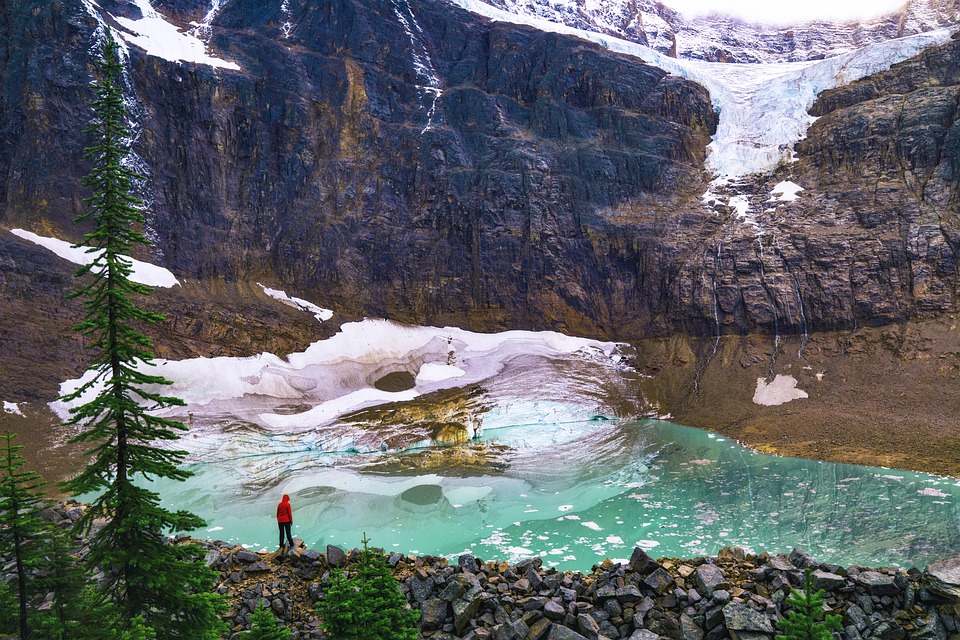Climate change is a problem the world is also facing today, as the warming climate has taken its toll not only on humans but on animals living in the polar regions. But despite the present efforts to find a solution in combating this challenge, the rising global temperatures have now brought the sea levels in line with the worst-case scenario predictions made by experts.
Express reports the sea levels today have now matched with the worst-case scenario predictions made by the Intergovernmental Panel on Climate Change. According to a study made by researchers from the University of Leeds and the Danish Meteorological Institute, should the current problems continue, then sea levels could go up by 17cm by the end of the century. One of the consequences of this would be almost 20 million people losing their homes.
The study also found that the melting ice from the icy continent of Antarctica brought in a 7.2mm rise in sea levels compared to Greenland, which brought in 10.6mm. But Antarctica and Greenland are not the only places to contribute to the rising sea levels as other glaciers elsewhere are melting or disappearing completely, adding to the rise.
“Although we anticipated the ice sheets would lose increasing amounts of ice in response to the warming of the oceans and atmosphere, the rate at which they are melting has accelerated faster than we could have imagined. The melting is overtaking the climate models we use to guide us, and we are in danger of being totally unprepared for the risks posed by sea level rise,” said the study’s lead author Dr. Tom Slater of the University of Leeds.
Previously, NASA has already warned of the rate of which the ice caps are melting, revealing that the ice caps are melting much faster than usual. The agency pointed out a region of the Norwegian archipelago Svalbard as one of the places where the ice is melting at an accelerated rate. The rate of which these places are melting is resulting in the depletion of freshwater resources.
Scientists have also revealed that global temperatures have gone up to 0.15-0.20 degrees Celsius per decade. This rise in temperatures has also led to the melting of frozen water under the ice caps.



 Drug pollution in water is making salmon take more risks – new research
Drug pollution in water is making salmon take more risks – new research  Rise of the Zombie Bugs takes readers on a jaw-dropping tour of the parasite world
Rise of the Zombie Bugs takes readers on a jaw-dropping tour of the parasite world  LA fires: Long-term exposure to wildfire smoke is poorly understood − and a growing risk
LA fires: Long-term exposure to wildfire smoke is poorly understood − and a growing risk  Lost in space: MethaneSat failed just as NZ was to take over mission control – here’s what we need to know now
Lost in space: MethaneSat failed just as NZ was to take over mission control – here’s what we need to know now  Eli Lilly’s Inluriyo Gains FDA Approval for Advanced Breast Cancer Treatment
Eli Lilly’s Inluriyo Gains FDA Approval for Advanced Breast Cancer Treatment  SpaceX’s Starship Completes 11th Test Flight, Paving Way for Moon and Mars Missions
SpaceX’s Starship Completes 11th Test Flight, Paving Way for Moon and Mars Missions  An unexpected anomaly was found in the Pacific Ocean – and it could be a global time marker
An unexpected anomaly was found in the Pacific Ocean – and it could be a global time marker  Jared Isaacman Confirmed as NASA Administrator, Becomes 15th Leader of U.S. Space Agency
Jared Isaacman Confirmed as NASA Administrator, Becomes 15th Leader of U.S. Space Agency  SpaceX Prioritizes Moon Mission Before Mars as Starship Development Accelerates
SpaceX Prioritizes Moon Mission Before Mars as Starship Development Accelerates  Fungi are among the planet’s most important organisms — yet they continue to be overlooked in conservation strategies
Fungi are among the planet’s most important organisms — yet they continue to be overlooked in conservation strategies  CDC Vaccine Review Sparks Controversy Over Thimerosal Study Citation
CDC Vaccine Review Sparks Controversy Over Thimerosal Study Citation  Burkina Faso and Mali’s fabulous flora: new plant life record released
Burkina Faso and Mali’s fabulous flora: new plant life record released  Lake beds are rich environmental records — studying them reveals much about a place’s history
Lake beds are rich environmental records — studying them reveals much about a place’s history  Trump Signs Executive Order to Boost AI Research in Childhood Cancer
Trump Signs Executive Order to Boost AI Research in Childhood Cancer  Blue Origin’s New Glenn Achieves Breakthrough Success With First NASA Mission
Blue Origin’s New Glenn Achieves Breakthrough Success With First NASA Mission  As the Black Summer megafires neared, people rallied to save wildlife and domestic animals. But it came at a real cost
As the Black Summer megafires neared, people rallied to save wildlife and domestic animals. But it came at a real cost 































